Two conducting plates A and B are placed parallel to each other. A is given a charge. Q1 and B a charge Q2. Find the distribution of charges on the four surface.
the charge on the outer plate A is Q1+Q22
the charge on the outer plate B is Q1+Q22
the charge on inner plate A is Q1−Q22
the charge on inner plate B is Q1−Q22
The correct Answer is:A, B, C, D
Step by step video, text & image solution for Two conducting plates A and B are placed parallel to each other. A is given a charge. Q_1 and B a charge Q_2. Find the distribution of charges on the four surface. by Physics experts to help you in doubts & scoring excellent marks in Class 12 exams.
Updated on:21/07/2023Topper's Solved these Questions
- ELECTROSTANTICSBOOK - FIITJEECHAPTER - ELECTROSTANTICSEXERCISE - COMPREHENSION BASED (COMPREHENSION - II)
3 Videos
- ELECTROSTANTICSBOOK - FIITJEECHAPTER - ELECTROSTANTICSEXERCISE - (PROBLEM SOLUTION) COMPREHENSION - I (COMPREHENSION BASED TYPE)
3 Videos
- ELECTROSTANTICSBOOK - FIITJEECHAPTER - ELECTROSTANTICSEXERCISE - ASSIGNMENT PROBLEMS (OBJECTIVE) LEVEL - I
24 Videos
- ELECTROMAGNETIC WAVE & WAVE OPTICSBOOK - FIITJEECHAPTER - ELECTROMAGNETIC WAVE & WAVE OPTICSEXERCISE - ASSIGNMENT PROBLEMS Objective : Level-II (MULTI CHOICE SINGLE CORRECT)
21 Videos
- ELECTROSTATICSBOOK - FIITJEECHAPTER - ELECTROSTATICSEXERCISE - Example
14 Videos
Similar Questions
Two conducting plates A and B are placed parallel to each other. A is given a charge Q1 and B a charge Q2. Prove that the charges on the inner surfaces are of equal magnitude and opposite sign.
View SolutionThree large plates A, B and C are placed parallel to each other and charges are given as shown. The charge that appears on the left surface of plate B is
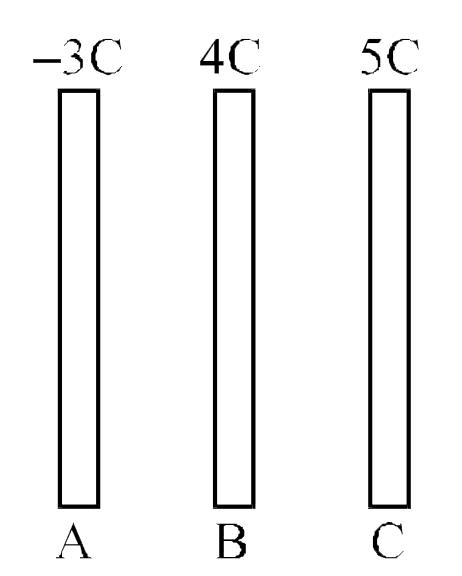
View Solution
Knowledge Check
Two nonconducting infinite planes sheets having charges Q and 2Q are placed parallel to each other as shown in figure. The charge distribution on the four faces of the two plates is also shown. The electric field intensities at three points 1, 2, and 3 are →E1,→E2,and→E3, respectively. Then the magnitudes of →E1,→E2,and→E3 are, respectively (surface area of plates is S ) :
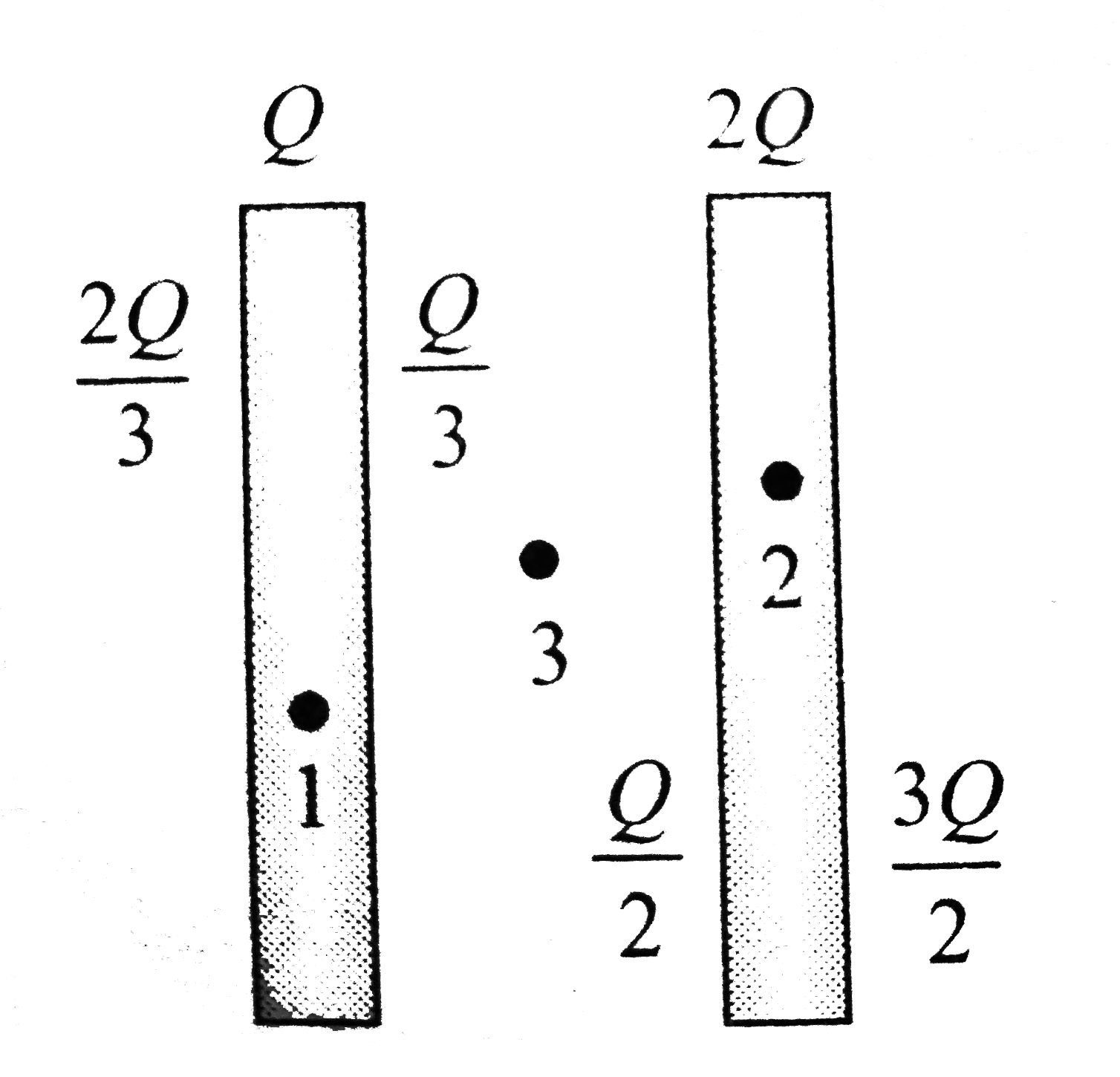 Azero,Qε0S,zeroB5Q6ε0S,Q2ε0S,zeroC5Q6ε0S,Q2ε0S,Q3ε0SDzero,Q2ε0S,zero
Azero,Qε0S,zeroB5Q6ε0S,Q2ε0S,zeroC5Q6ε0S,Q2ε0S,Q3ε0SDzero,Q2ε0S,zeroTwo large conducting plates are placed parallel to each other with a separation of d between them. An electron starting from rest near one of the plates reaches the other plate in time t. If e is the charge on the electron and m is its mass, then the surface charge density on the inner surface is
Adme4πε0t2Bdmε04πet2C2dmε0et2DNone of the aboveX and Y are large, parallel conducting plates close to each other. Each face has an area A. X is given a charge Q. Y is without any charge. Points A,B and C are as shown in the figure.
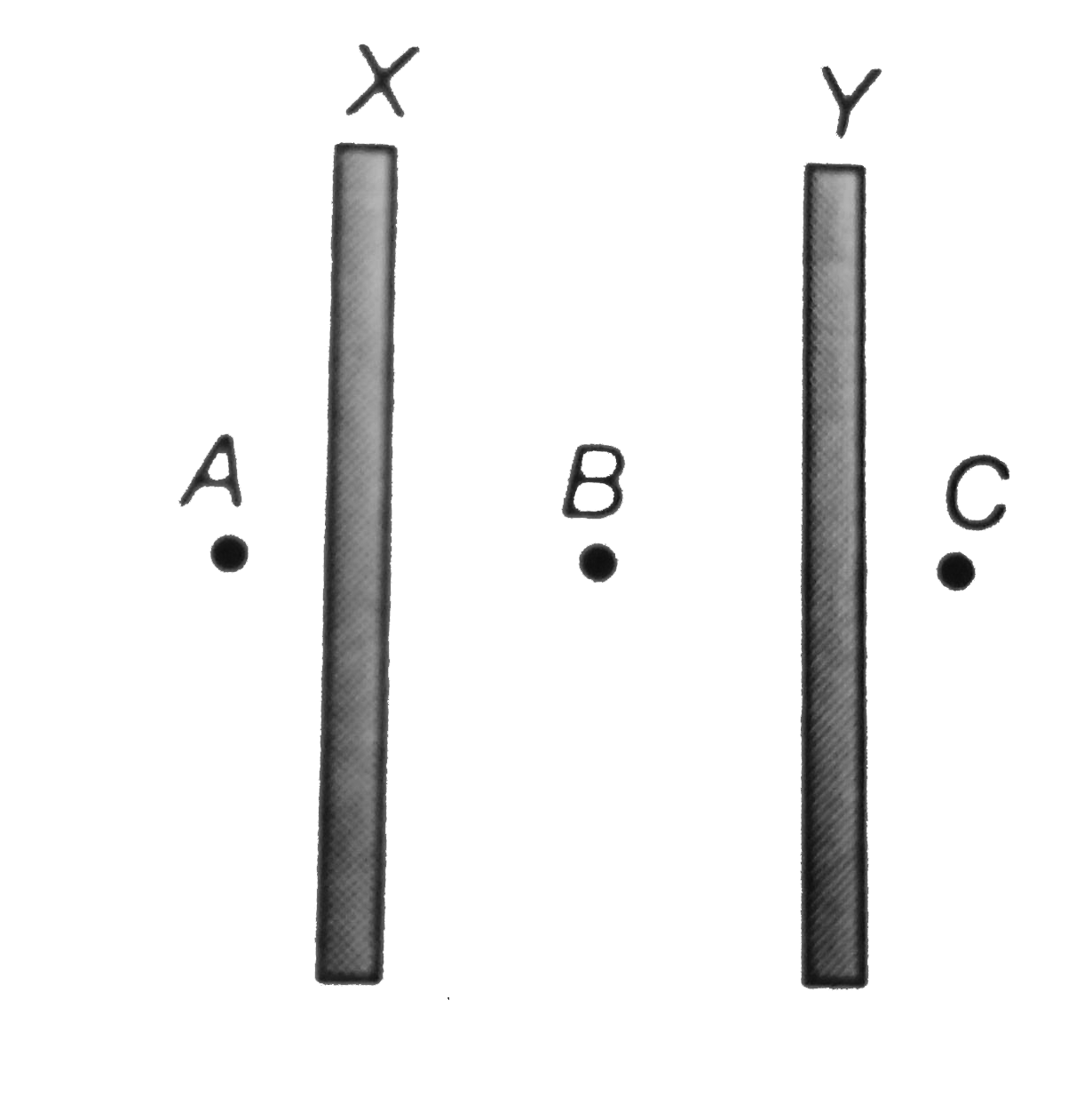 AThe field at B is Q2εABThe field at B is Qε0ACThe fiels at A,B and C are of the same magnitudeDThe fieds at A and C are of the same magnitude, but in opposite directions
AThe field at B is Q2εABThe field at B is Qε0ACThe fiels at A,B and C are of the same magnitudeDThe fieds at A and C are of the same magnitude, but in opposite directions
A and B are two large identical thin metal plates placed parallel to each other at a small separation. Plate A is given a charge Q. (i) Find the amount of charge on each of the two faces of A and B. (ii) Another identical plate C having charge 3Q is inserted between plate A and B such that distance of C from B is twice its distance from A. Plate A and B is shorted using a conducting wire. Find charge on all six faces of plates A, B and C. (iii) In the situation described in (ii) the plate A is grounded. Now write the charge on all six faces.
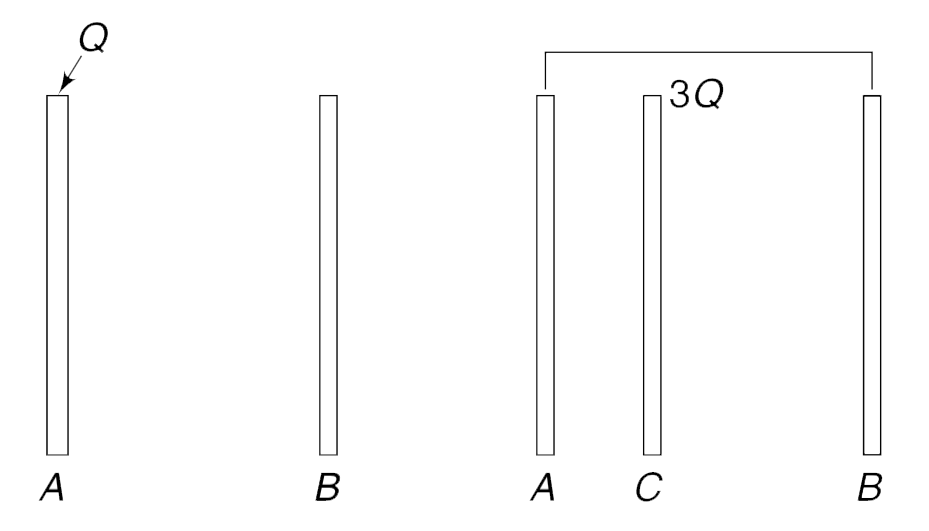
View SolutionThree large conducting sheets placed parallel to each other at a finite distance contain charges Q,−2Q,and3Q, respectively. Find the electric fields at points A, B, C, and D.
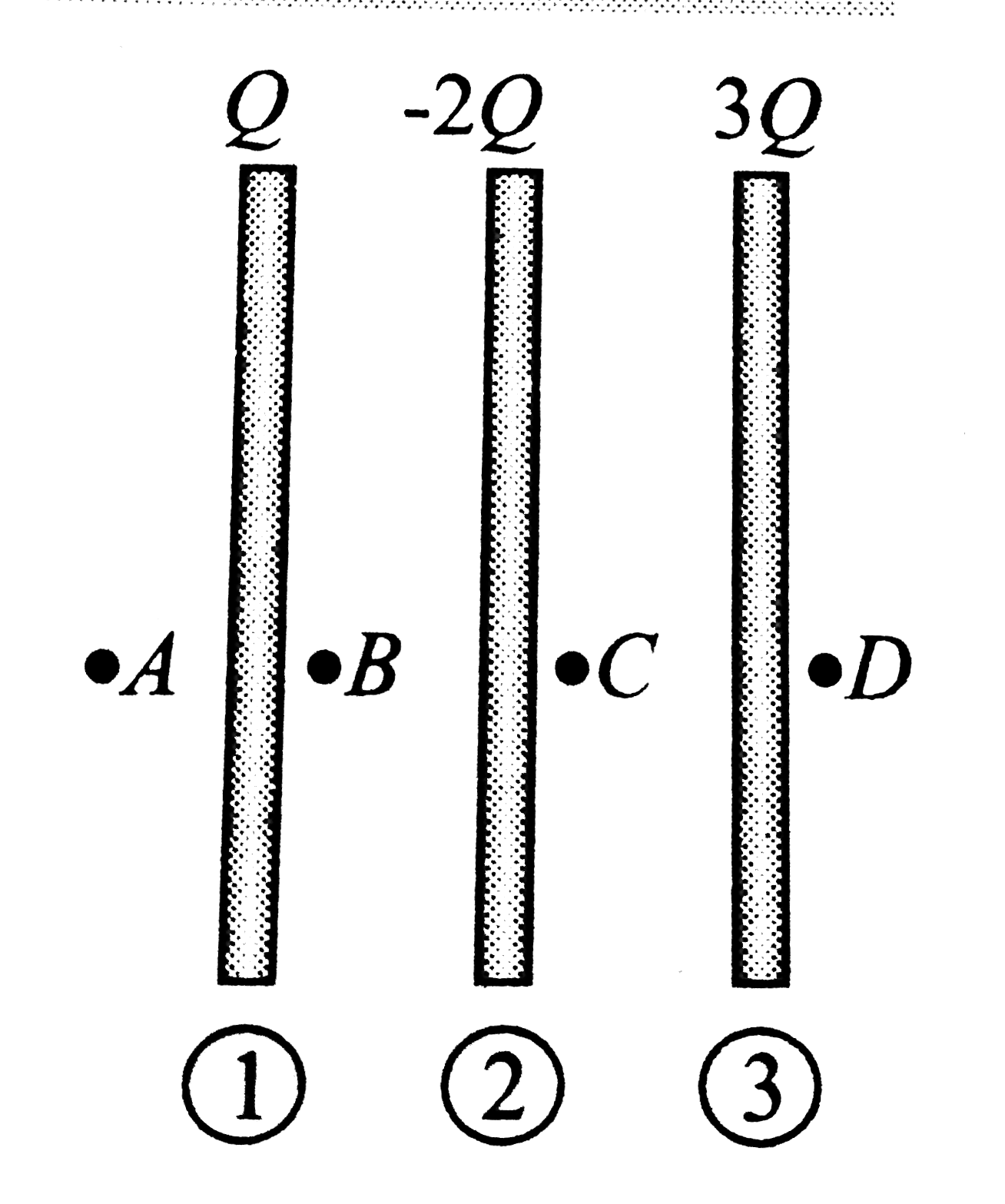
View SolutionThe negative plate of a parallel plate capacitor is given a charge of −20X10−8C. Find the charges appearing on the four surface of the capacitor plates.
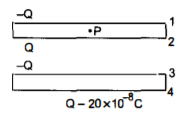
View SolutionSome isolated metal plates with large surface areas are kept parallel to each other and total charges on each plate are as shown. Find the charge appearing on the surfaces of plates.
(a)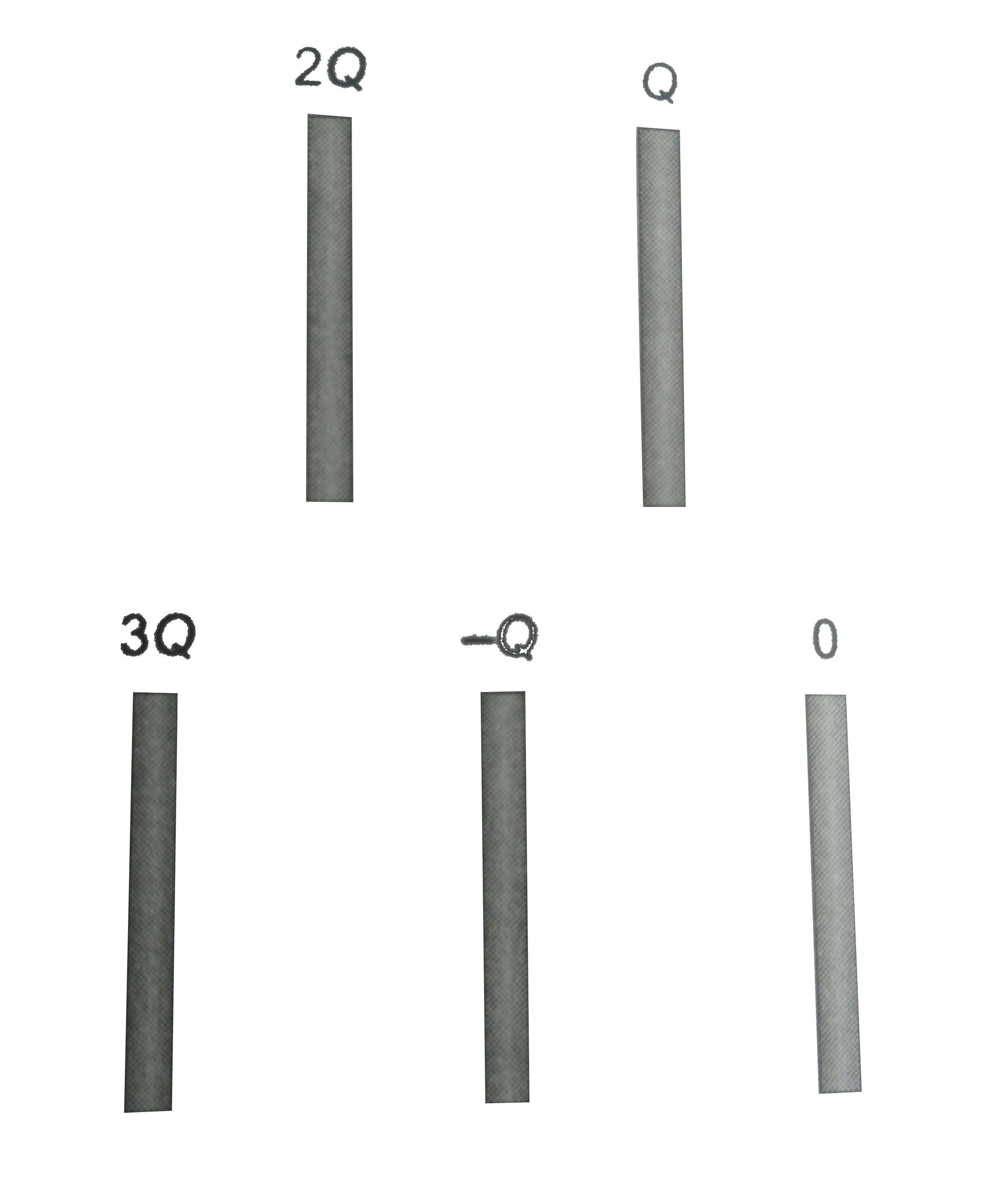
View SolutionTwo conducting plates M and N, each having large surface area A (on one side), are placed parallel to each other in figure. The plate M is given charge Q1 and N, charge Q2(<Q1). Then
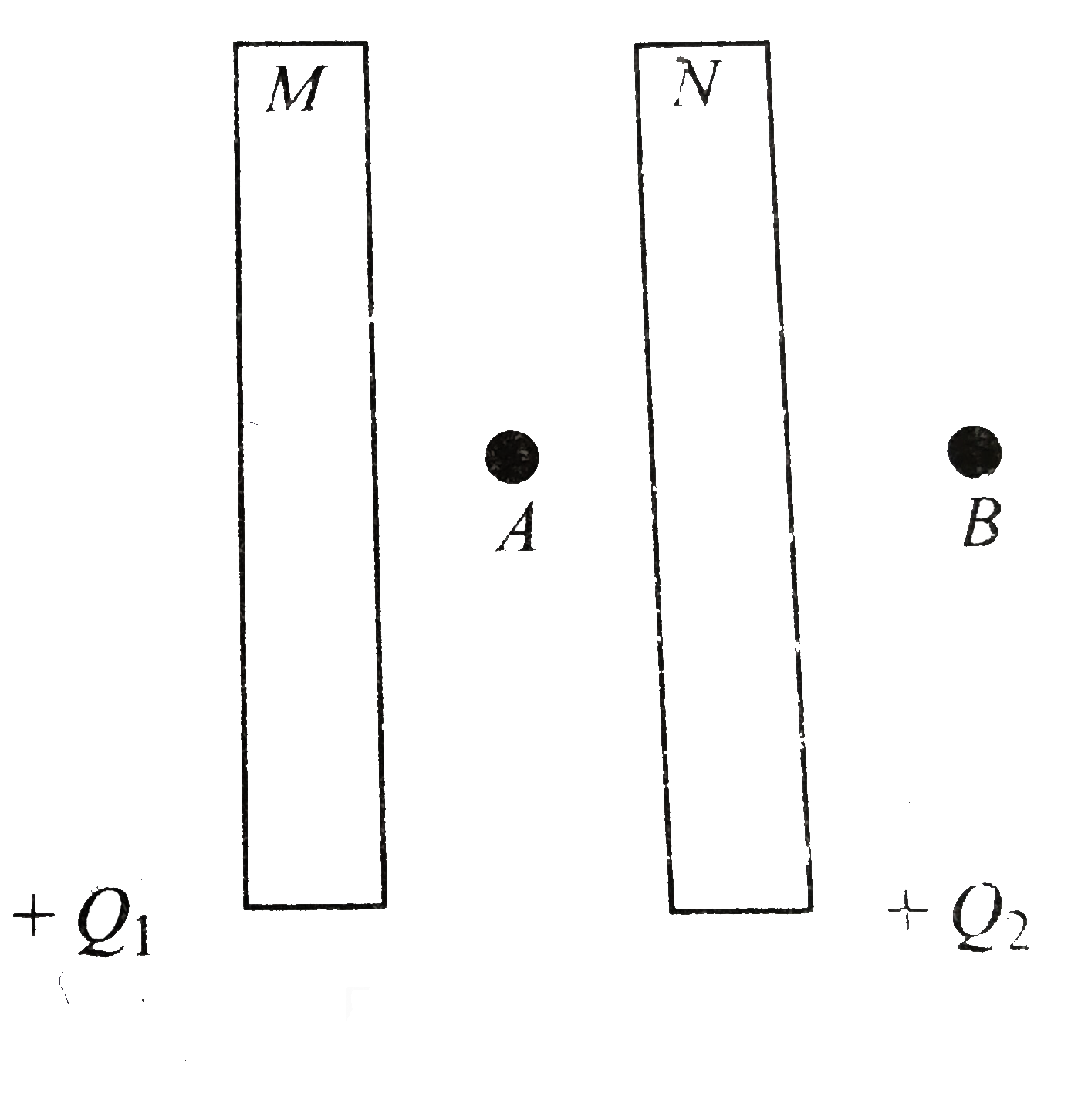
View Solution
